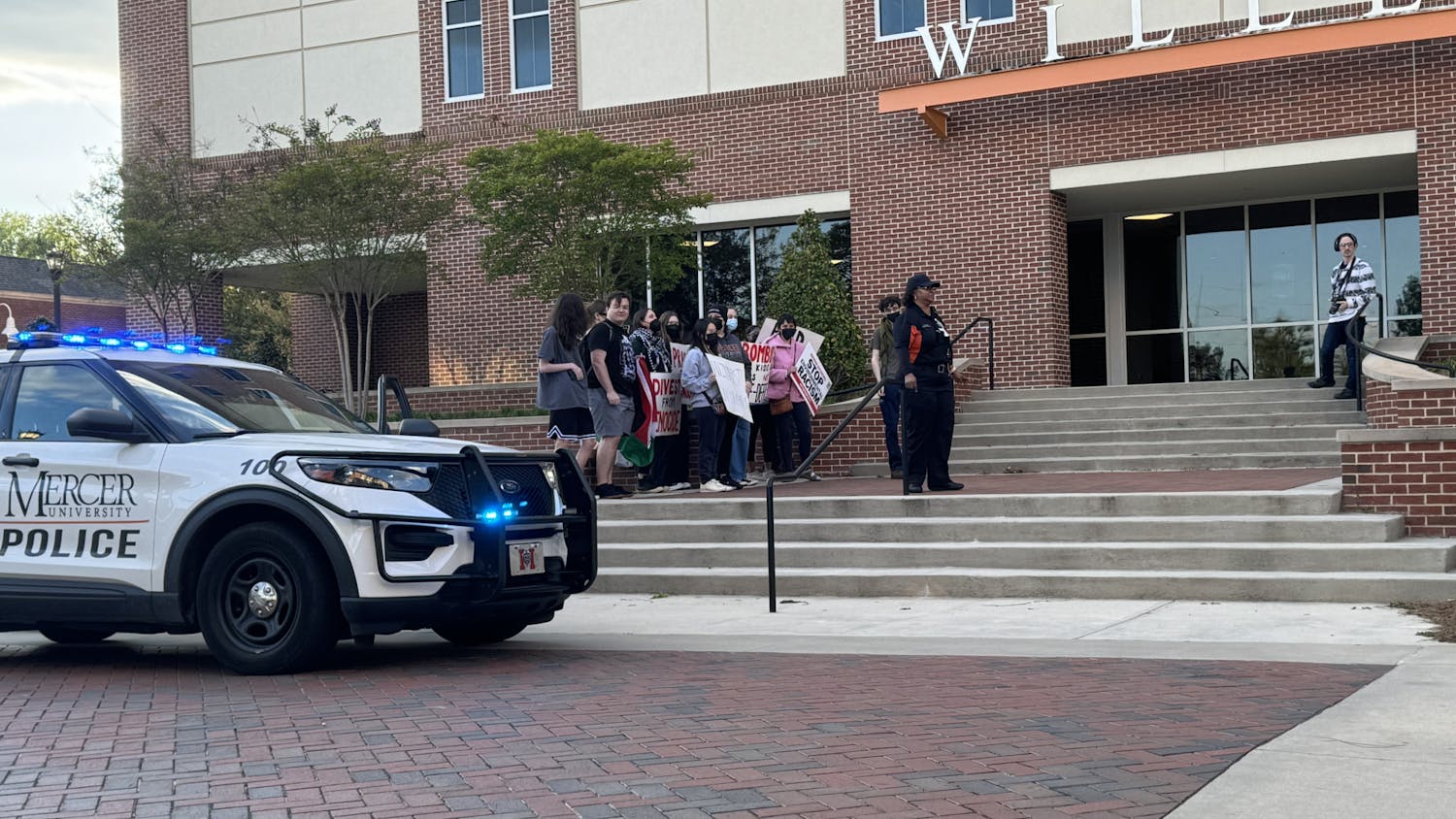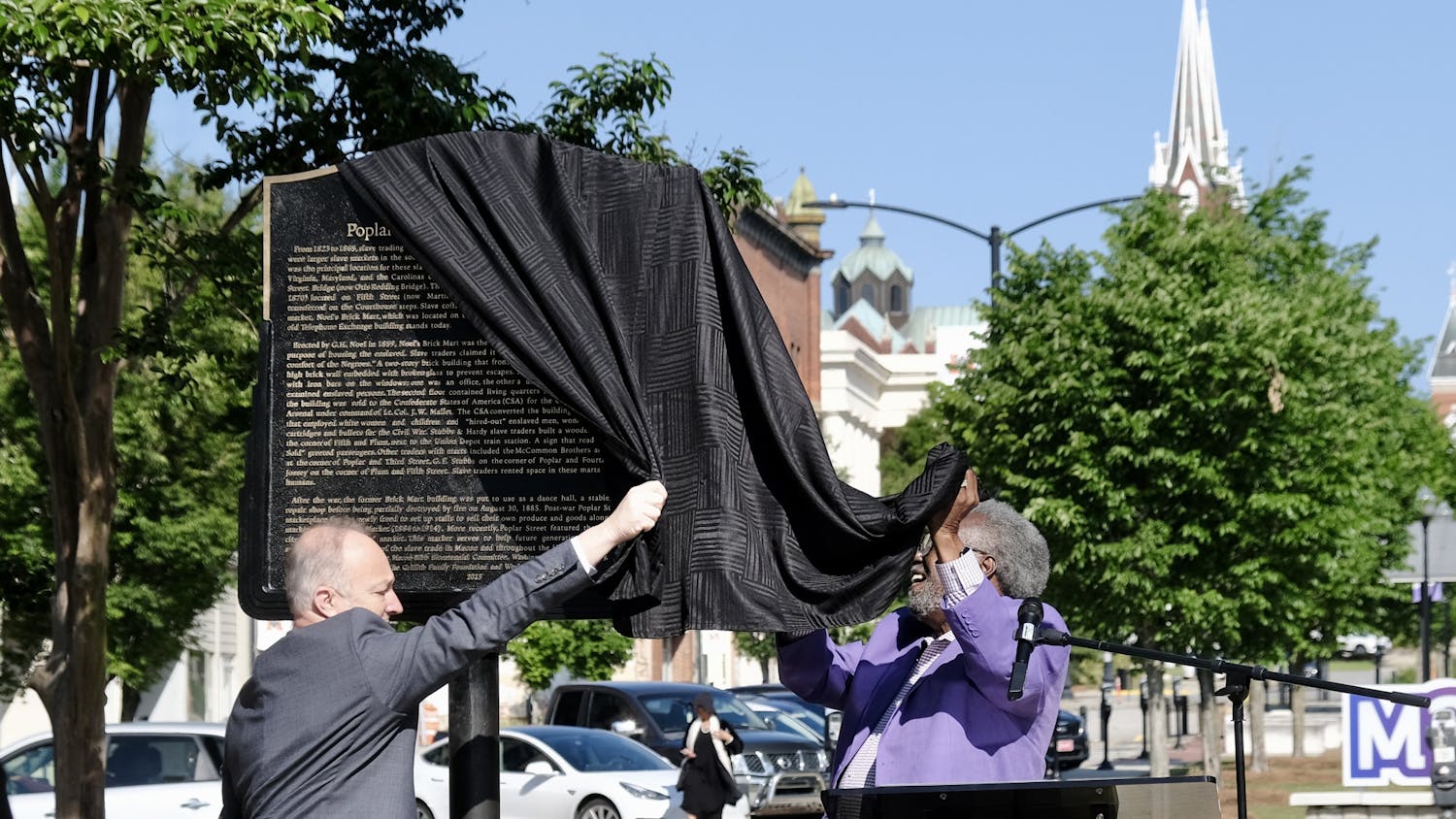Presidential debates have become a mainstay in the election process, and this cycle is no different. Debates can also be confusing, and while I will obviously be watching, I wanted to ask some of Mercer’s own experts what they think about presidential debates and whether or not they believe debates will have any impact on you as a voter.
Chris Grant, political science department chair and campaigns and elections expert, and Derek Glasgow, a political science professor and a campaign and research expert, had similar views on the issue.
“Watch it, talk with your friends and the people you know — and do not listen to any pundits or commentators on who won or lost,” Grant said. “The purpose of debates is to give voters direct information about the candidates, so you can make your own assessment of who won and who lost according to your own criteria according to the issues that are important to you.”
Grant gave some insight into what we could expect going into this debate, citing the Barack Obama 2012 election, the George W. Bush 2004 election and the Ronald Reagan 1984 election. He said that often, incumbent presidents have a poor showing at their first debate.
“The president has not been being questioned on a daily basis by other candidates, whereas Joe Biden has been on a debate stage 20 times this year,” he said. “He has seen himself do well and he has seen himself do poorly, so he has a good sense of who he is.”
Grant also discussed the rhetoric being used by each campaign about the other.
“(President Donald) Trump has actually created a fairly easy night for Joe because he has painted him as ‘Sleepy Joe,’ that he’s geriatric and can barely stand on the stage, so they have already set the bar so low, all he has to do is get up on the stage and give a C performance to do well,” he said.
He commended Trump in the 2016 election for employing a similar tactic.
“He knew that Hillary was smart, so every time she would say something, he would say, ‘yeah, we know she’s smart, but she is corrupt and should be in jail.’ It was very effective,” Grant said.
Overall, Grant said you can expect a message or rhetoric from Biden that “he is a compassionate elder statesman.” From Trump, he said, you can expect a message that “he got done everything he promised he would and that he is a very effective and successful president.”
Glasgow took a different approach to discuss the debate: he looked at the research.
“As my overarching argument, I do think debates arguably are important; however, I do not believe they have a large outcome on the election,” Glasgow said.
Glasgow, a researcher, looked specifically at the data surrounding debates and campaigns. He said that “research shows that debates are arguably a more effective way for campaigns to give their message rather than say, the news.” But this only occurs during a good debate, and not what he calls “a circus.”
Another reason he claims that debates are important is that they reach a large audience.
“At the first Clinton/Trump debate in 2016, there was an audience of 84 million people, so debates are a great way for campaigns to reach out and get people to get engaged in the election,” Glasgow said.
But debates also usually reinforce partisan support, according to Glasgow, and “very rarely is a debate going to get the other side to vote for their candidate. This is even stronger in an era with partisan leanings.”
While Glasgow tends to be, in his own words, pessimistic when it comes to debates, he does believe that “they are a unique opportunity for a candidate to confront the other candidate, which does not usually happen.”
He also said that his definition of a good debate is when the two candidates clash, and they are forced to argue the validity of their points. But he also made clear that despite it being a good debate, “winning the debate does not necessarily mean winning the election, and that was made clear in 2016.”
Overall Glasgow said that debates have little to no impact on most voters. But to a small group of voters, they prove to be very persuasive and important.
For example, “if you are interested in politics, and you are undecided, or your party allegiance is week, then the debate may have a large impact,” he said.
Glasgow said that if you watch the debate, you can expect clashing rhetoric where they either do not respond to each other or completely move on from a question, and that is common.
“I don’t believe it is good for debates or democracy,” Glasgow said. “But typically you get some policy out of them.”
The first presidential debate is set to take place Sept. 29 at 9 pm. Mobilize Mercer, Young Democrats, College Republicans and the political science department will be streaming it live on Cruz Plaza for all students to attend.
As always, if you are not registered to vote, please visit https://www.vote.org to register.
ANALYSIS: Should we watch the presidential debates?





